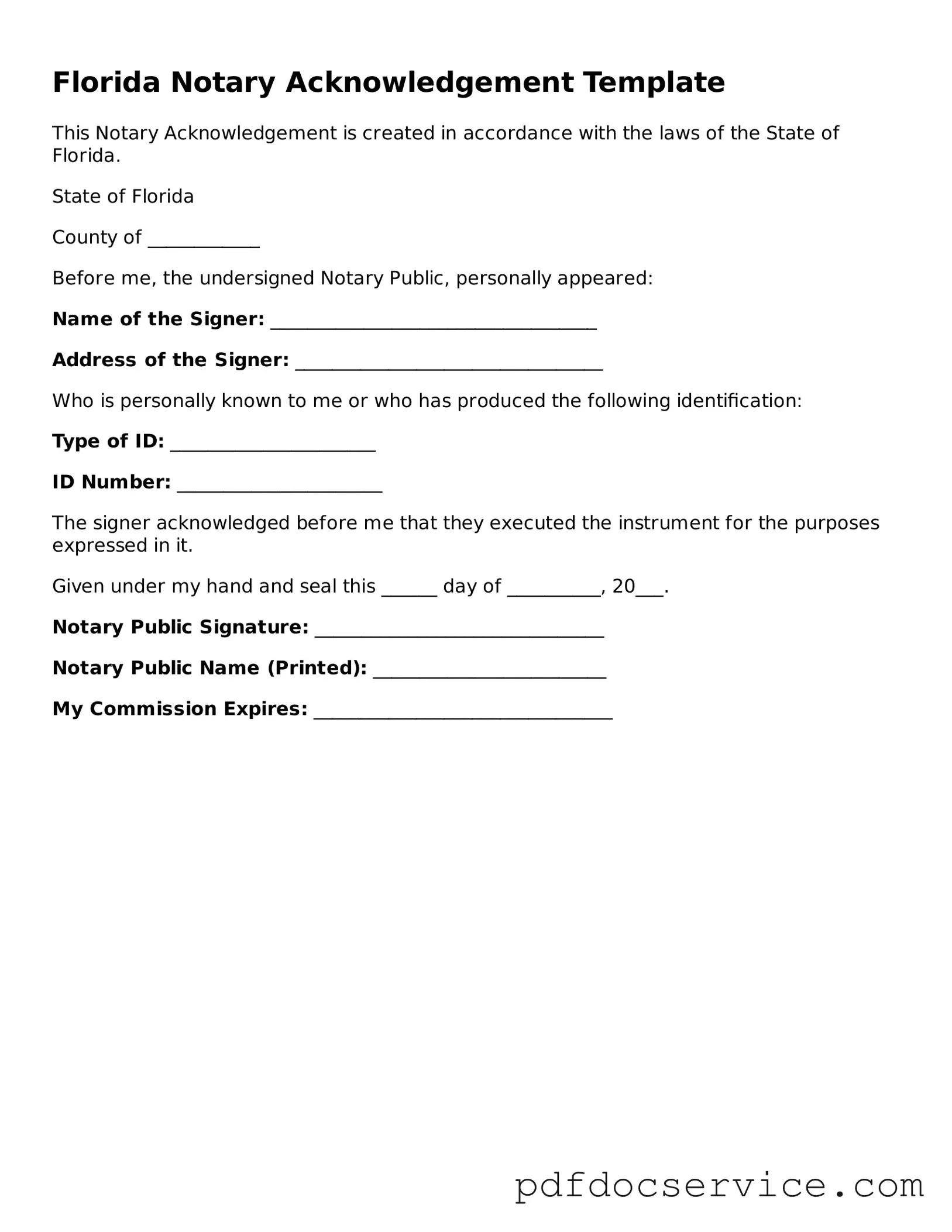The Florida Notary Acknowledgement form is a document used to confirm that a person has signed a particular document in the presence of a notary public. It serves as proof that the signer is who they claim to be and that they signed the document willingly.
You typically need to use a Notary Acknowledgement form when signing important documents, such as real estate transactions, legal contracts, or financial agreements. It is often required by law or by the institution requesting the document.
Who can act as a notary in Florida?
In Florida, a notary public must be a resident of the state, at least 18 years old, and possess a high school diploma or its equivalent. Notaries are appointed by the Governor and must complete a training course and pass an exam.
The Notary Acknowledgement form typically includes:
-
The name of the person signing the document.
-
The date of the acknowledgment.
-
The notary's signature and seal.
-
A statement affirming that the signer appeared before the notary and signed the document.
Do I need to sign the document in front of the notary?
Yes, you must sign the document in the presence of the notary. The notary will verify your identity and witness your signature before completing the acknowledgment.
What identification do I need to provide to the notary?
You should provide a valid form of identification. Acceptable forms include a driver's license, state-issued ID, passport, or any other government-issued identification that includes your photograph and signature.
Is there a fee for notarization in Florida?
Yes, notaries in Florida can charge a fee for their services. The maximum fee for a standard acknowledgment is set by state law. It is advisable to ask the notary about their fees before the service is provided.
Can a notary refuse to notarize my document?
Yes, a notary can refuse to notarize a document if they have doubts about the signer's identity, if the signer appears to be under duress, or if the document does not meet legal requirements. It is important to ensure that all conditions are met for notarization.
How long is a Notary Acknowledgement valid?
A Notary Acknowledgement does not expire. However, the document itself may have its own validity period based on the type of document and the laws governing it. It is best to check the specific requirements for the document in question.
Where can I find a notary in Florida?
You can find a notary public in Florida through various sources. Many banks, law offices, and public libraries offer notary services. Additionally, you can search online directories or use mobile notary services that come to your location.

